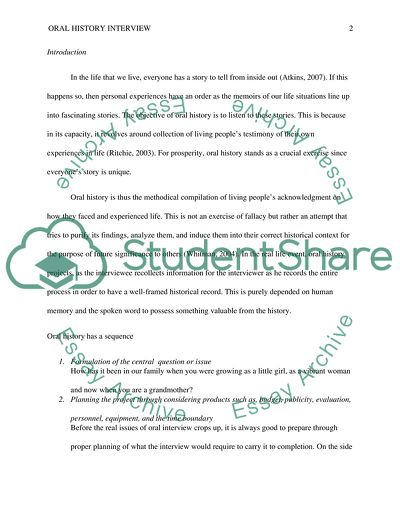Cite this document
(Oral Life History Interview Report Example | Topics and Well Written Essays - 1500 words, n.d.)
Oral Life History Interview Report Example | Topics and Well Written Essays - 1500 words. https://studentshare.org/social-science/1820059-life-history-interview-project-reflection-paper-chart
Oral Life History Interview Report Example | Topics and Well Written Essays - 1500 words. https://studentshare.org/social-science/1820059-life-history-interview-project-reflection-paper-chart
(Oral Life History Interview Report Example | Topics and Well Written Essays - 1500 Words)
Oral Life History Interview Report Example | Topics and Well Written Essays - 1500 Words. https://studentshare.org/social-science/1820059-life-history-interview-project-reflection-paper-chart.
Oral Life History Interview Report Example | Topics and Well Written Essays - 1500 Words. https://studentshare.org/social-science/1820059-life-history-interview-project-reflection-paper-chart.
“Oral Life History Interview Report Example | Topics and Well Written Essays - 1500 Words”. https://studentshare.org/social-science/1820059-life-history-interview-project-reflection-paper-chart.


